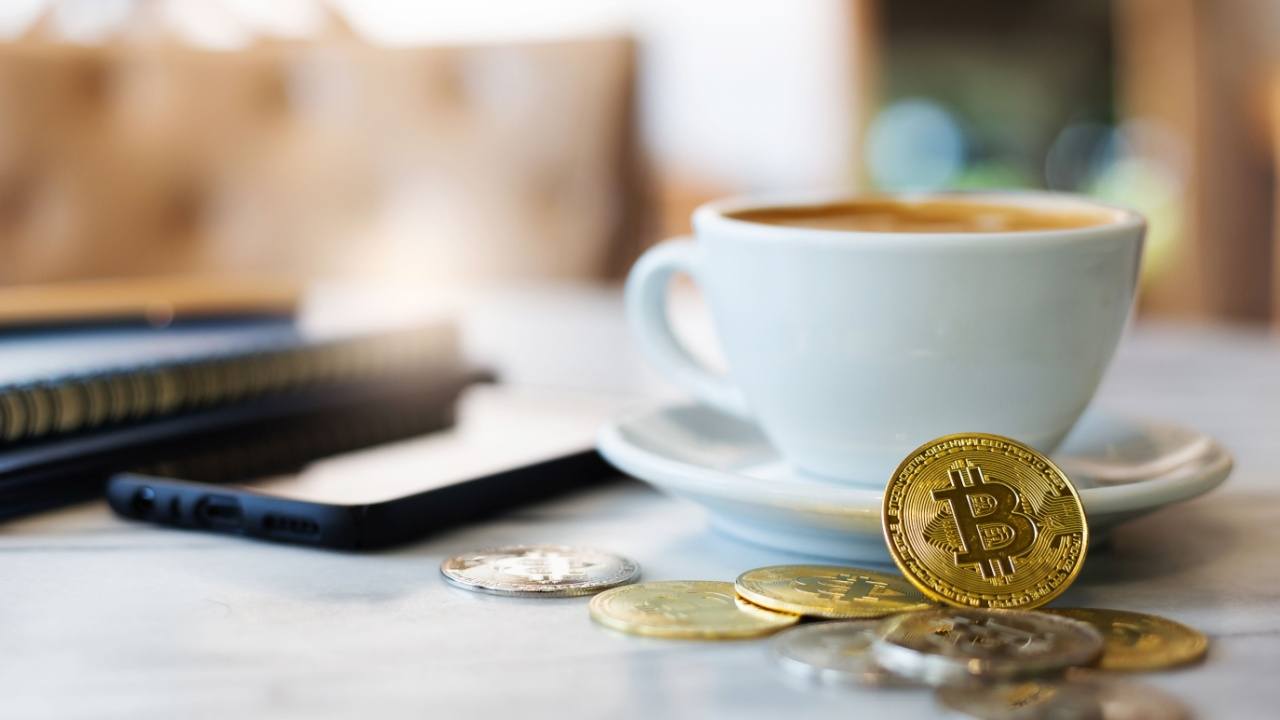Vanadi Coffee, a modest Spanish café chain operating six outlets primarily in Alicante, has sparked considerable attention in both business and cryptocurrency circles by approving a bold €1 billion (approximately $1.17 billion) investment plan focused on Bitcoin accumulation. This audacious pivot reflects a broader corporate trend inspired by high-profile Bitcoin advocates like MicroStrategy’s Michael Saylor and signals a dramatic reimagining of Vanadi’s corporate identity—from traditional coffee retailer to “Bitcoin-first” enterprise.
A Radical Shift: From Coffee to Crypto Treasury
Vanadi Coffee’s history and recent performance paint a picture of a struggling business. In 2024, the chain reported losses upwards of €3.3 million (around $3.7 to $3.9 million), with financial forecasts not expecting profitability until at least 2027. Despite this financial headwind and a share price that has cratered by 99% since its initial public offering, the shareholders overwhelmingly endorsed the board’s proposal to allocate a staggering sum to Bitcoin purchases.
The move is emblematic of a high-risk, high-reward strategy—betting that Bitcoin’s volatility and potential appreciation can outperform the sluggish recovery or saturated coffee market. Chairman Salvador Martí, a driving force behind the initiative, envisions Vanadi transforming into something akin to MicroStrategy but within Europe, becoming a beacon for Bitcoin corporate treasury investing.
Strategic Influences and Market Context
MicroStrategy’s high-profile, multi-billion-dollar Bitcoin acquisitions since 2020 have clearly influenced Vanadi’s game plan. This precedent has demonstrated for some companies a path toward brand differentiation and potential long-term value appreciation by embracing a Bitcoin treasury model.
Vanadi’s plan involves raising approximately €1 billion to enact these purchases, which dwarfs its market capitalization and recent revenues. The scale indicates a near-total strategic pivot, suggesting that Vanadi no longer views its coffee operations as a core of future growth but rather as a platform to bootstrap Bitcoin accumulation. The company already holds a modest quantity of Bitcoin (54 BTC) under custody at Spain-based exchange Bit2Me, serving as a baseline for this aggressive scaling.
The global climate of widespread corporate Bitcoin interest adds context here—Vanadi is joining a growing list of firms like GameStop and Europe’s Blockchain Group that have incorporated Bitcoin into their balance sheets in pursuit of asset appreciation and inflation hedging.
Risks and Challenges
The Vanadi case is rife with substantial risks. Foremost among these is the paradox of investing heavily in Bitcoin while concurrently grappling with persistent operational losses in its core business. Shareholders are essentially gambling on the cryptocurrency market to rescue or vastly increase corporate value amid ongoing struggles in the traditional sector.
Bitcoin itself is famously volatile, exposing the company to significant market risks. Should Bitcoin prices fall or remain stagnant long term, Vanadi’s balance sheet and creditworthiness could be severely impacted, deepening financial woes. Moreover, a €1 billion Bitcoin purchase dwarfs Vanadi’s current operational scale, raising skepticism about whether this level of capital raising and asset allocation is sustainable or prudent.
Regulatory risks also merit consideration. The evolving legal landscape around cryptocurrencies could introduce compliance costs or limitations that affect the company’s ability to monetize or leverage its Bitcoin holdings effectively.
Potential Upsides and Strategic Rationale
Despite these risks, the rationale behind Vanadi’s bold move is grounded in economic logic shaped by current macro-financial conditions. With ultra-low yields and lingering inflation concerns, Bitcoin is perceived by some corporate leaders as a superior store of value and a modern hedge against fiat currency depreciation.
By repositioning itself as a Bitcoin-first entity, Vanadi aims to:
– Attract new investor classes enthusiastic about cryptocurrencies.
– Differentiate its brand narrative amidst a saturated coffee market.
– Potentially unlock unconventional financing routes predicated on digital asset holdings.
– Generate upside in asset value commensurate with Bitcoin’s strong historical returns.
If Bitcoin’s market value surges in the coming years, Vanadi’s balance sheet could experience a significant boost, potentially allowing the company to reinvest in its retail business or aggressively scale its new vision.
Industry and Investor Reception
The decision has met a mixed reception: crypto enthusiasts admire Vanadi’s trailblazing ambition, while traditional investors and analysts have expressed skepticism, labeling the strategy as a “hail Mary” doomed to fail given the company’s current financial status and the inherent volatility of cryptocurrencies.
Vanadi’s stock price already exhibited dramatic movements, including an explosive 242% surge within a recent month following announcements linked to the Bitcoin plan. This jump reflects speculative trading driven by optimism about the new strategic direction, but such volatility may unsettle long-term investors.
What Lies Ahead: The Future of Vanadi Coffee
Vanadi Coffee’s plan marks a historic moment, as it aims to become one of Europe’s first—and potentially largest—Bitcoin treasury companies among consumer-facing brands. The upcoming months and years will test whether this calculated gamble can translate into financial rejuvenation or devolve into a cautionary tale of speculative excess.
For Vanadi, success hinges on several factors:
– Effective capital raising without crippling dilution or excessive debt.
– Market timing and Bitcoin price appreciation.
– Operational adaptability to balance coffee retail with crypto asset management.
– Navigating regulatory and accounting complexities inherent in cryptocurrency holdings.
Conclusion: An Unconventional Gamble That Reshapes Corporate Identity
Vanadi Coffee’s €1 billion Bitcoin investment plan is an unprecedented and daring leap for a small Spanish café chain entrenched in financial difficulty. This move crystallizes a broader trend where traditional companies reconsider conventional asset management, embracing digital currencies as core elements of their corporate strategy.
Whether the gamble proves visionary or imprudent, Vanadi’s pivot amplifies questions about the evolving definitions of corporate treasury management and the risky allure of cryptocurrency as a foundation for business reinvention. It embodies a fascinating crossroads of old-world commerce and new-world finance, capturing the imagination of investors eager for innovation and wary of the pitfalls ahead.











